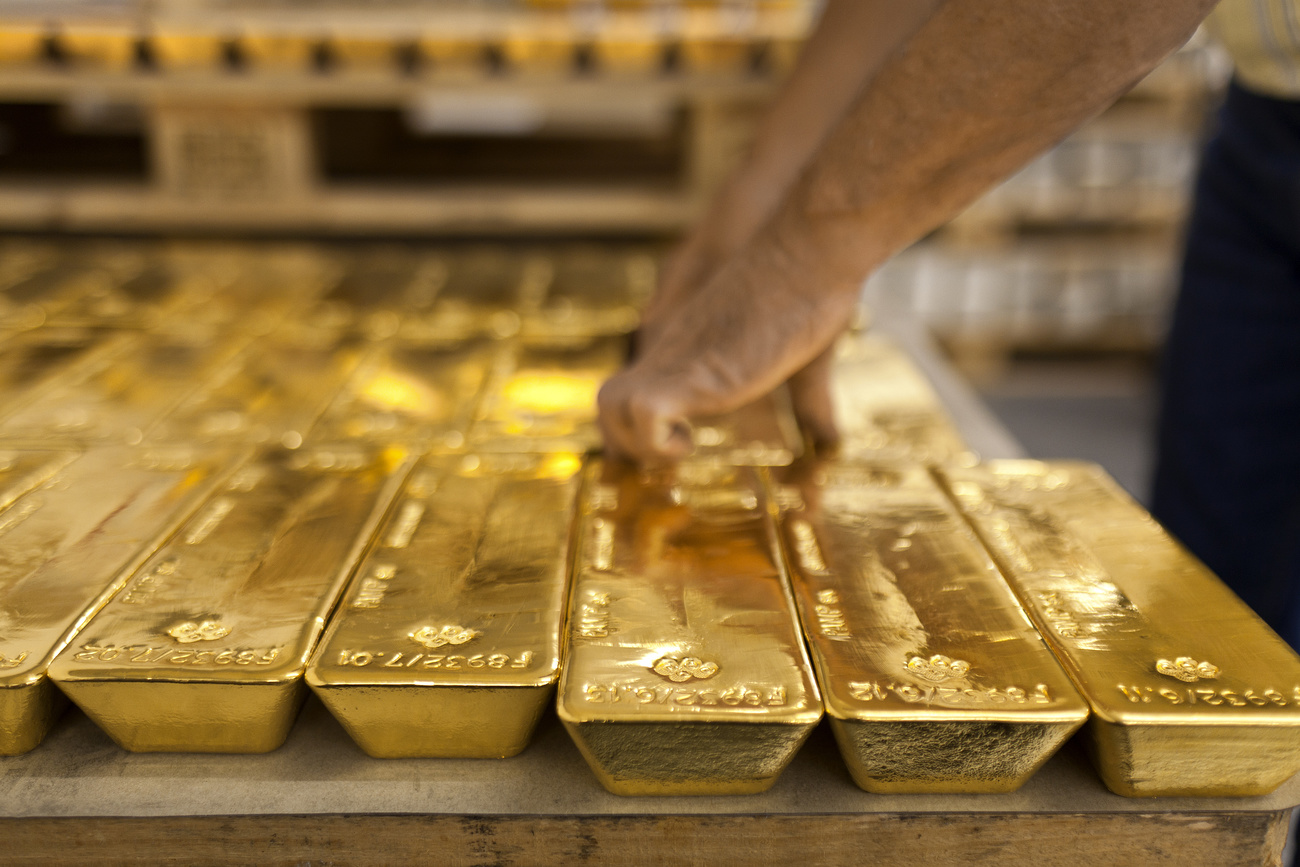
Swiss NGO denounces imports of Russian gold

Switzerland imported unprecedented amounts of gold from Russia in February this year, according to a Swiss NGO that is campaigning for greater transparency in the gold sector. That’s despite sanctions imposed because of Russia’s war on Ukraine.
“Despite sanctions, Russian gold is entering Switzerland that may be linked to human rights violations in Sudan as well as co-financing the war of aggression against Ukraine, which is against international law,” said Christoph Wiedmer, co-director of the Society for Threatened Peoples (STP).
In February, Switzerland bought 18.9 tonnes of gold from Russia via the London Precious Metals Market. Among them could be gold linked to human rights violations.
+ Swiss refiners and their opaque sourcing of gold from Africa
The NGO is concerned that the Russian gold ending up in Switzerland could include gold acquired by Yevgency Prigozhin, the head of Russia’s notorious Wagner Group. The paramilitary group has been crucial to Moscow’s foreign military campaigns, including in Ukraine and in Sudan, where violent clashes between two factions competing for power have triggered dramatic evacuations in recent days.
“In recent years, the Wagner troops have been supporting authoritarian regimes in Sudan, Chad and Central Africa,” says the NGO in a statement. “In return for military support, Wagner receives economic benefits, in Sudan, for example, access to gold deposits there.”
The paramilitary group reportedly arrived in Sudan in 2017 at the invitation of then-President Omar al-Bashir. It set up Meroe Gold, a Prigozhin-controlled company, which was later sanctioned by the United States, to run its operations and explore gold resources in the African nation.
Like the EU, Switzerland has placed the Wagner Group on its sanctions list.
Establishing whether illicit Russian gold reached Switzerland is not an easy task. In March 2022, the Federal Administrative Court ruled that companies don’t need to clarify the origins of their gold or their suppliers. The Society for Threatened Peoples has appealed that decision arguing that the public has a right to this information.
“Big question marks around imports of Russian gold could be solved, and reputable gold refiners would not need to fear this transparency,” according to Wiedmer.
The Swiss Association of Precious Metal Manufacturers and Dealers has stated in the past that its members do not touch Russian gold. Swiss refiners typically argue that they are transparent with whom they need to be – customs authorities, for example – but consider that specific details such as which specific mines they use to source gold could compromise competitiveness.

In compliance with the JTI standards
More: SWI swissinfo.ch certified by the Journalism Trust Initiative

























You can find an overview of ongoing debates with our journalists here . Please join us!
If you want to start a conversation about a topic raised in this article or want to report factual errors, email us at english@swissinfo.ch.